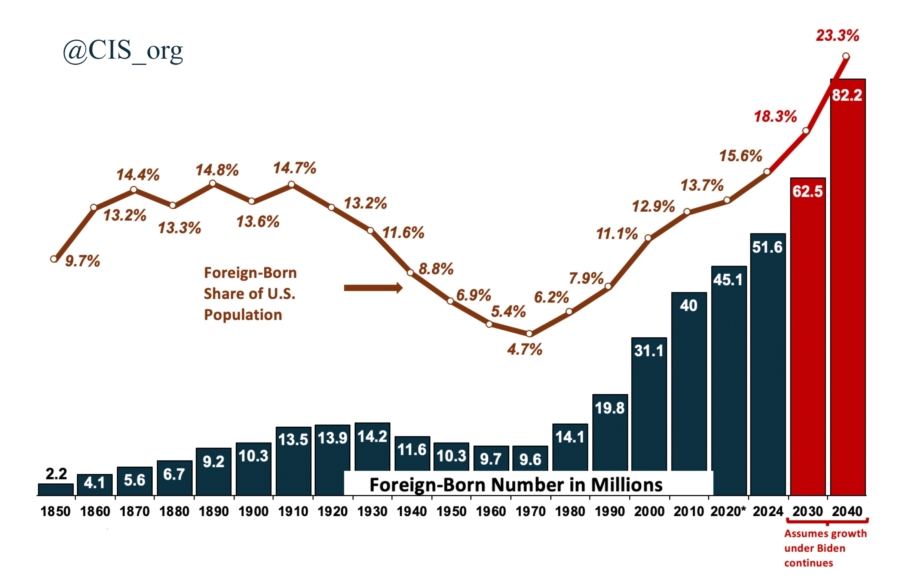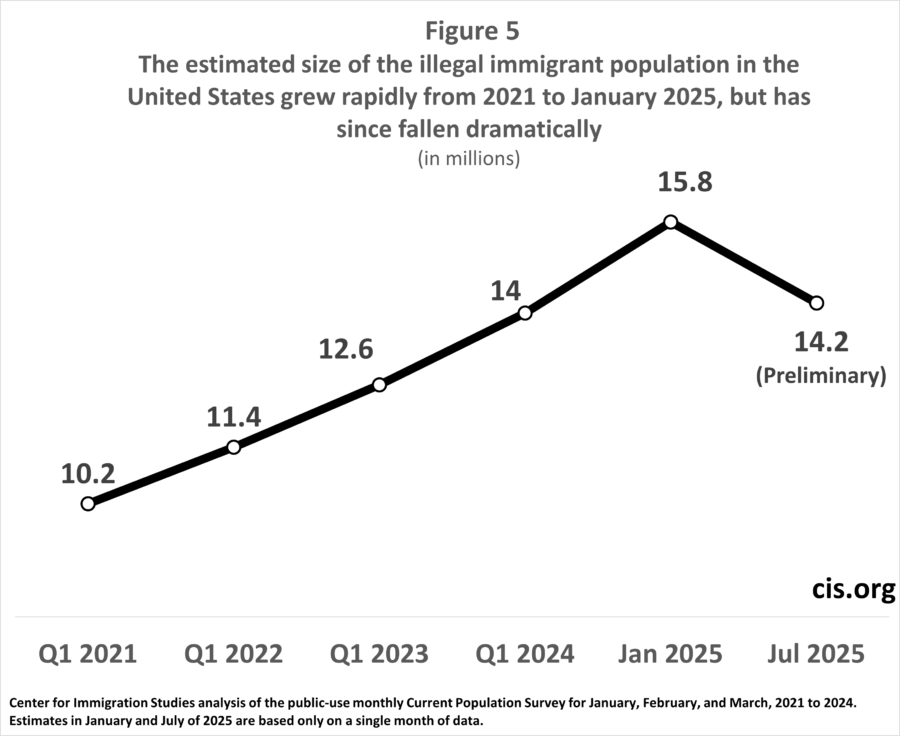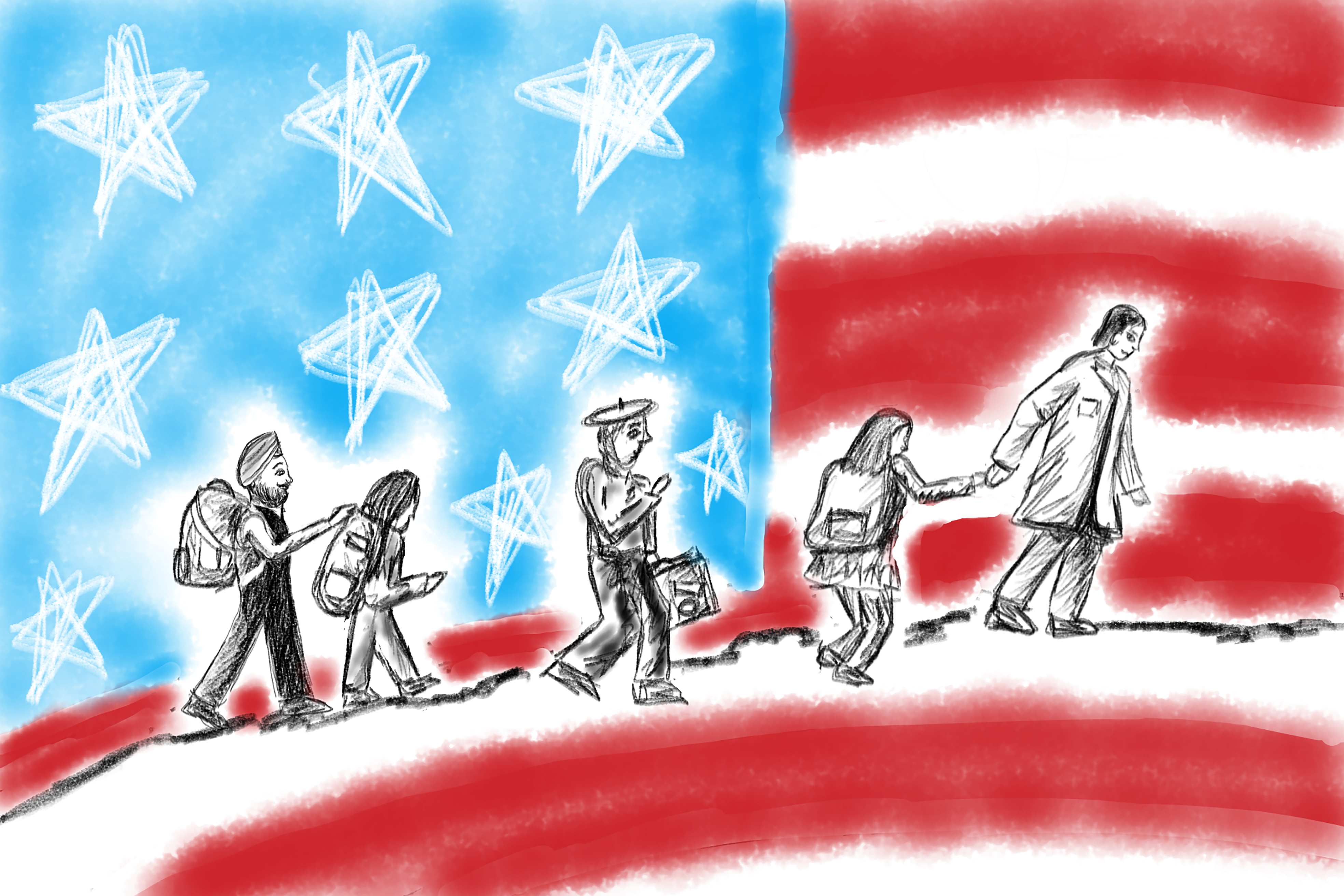
The Trump administration intensifies its efforts to deport undocumented immigrants or encourage them to leave voluntarily.
The administration of President Donald Trump has accelerated a nationwide effort to remove 600,000 undocumented immigrants from the United States during the first year of a sweeping campaign, according to the New York Post.

But the overall impact appears far greater. The Department of Homeland Security (DHS) said more than 2 million illegal immigrants have left the U.S. since January, a figure that includes both forced deportations and voluntary departures.
Agents from U.S. Immigration and Customs Enforcement (ICE) and other federal agencies have also detained more than 457,000 undocumented migrants, with officials describing the current phase as “only the beginning.”

DHS spokesperson Tricia McLaughlin said President Trump and Homeland Security Secretary Kristi Noem have “restarted an agency that was prevented from doing its job for the past four years,” referring to ICE.
McLaughlin added that federal agents have made “historic progress in fulfilling President Trump’s promise to detain and deport those who entered our country illegally.”
According to DHS data, more than 493,000 undocumented immigrants have been deported since the start of Trump’s second term, while another 1.6 million have voluntarily left the country.
“Illegal immigrants are hearing our message — leave now or face the consequences,” McLaughlin said. “Many have even turned back before reaching the border.”
In September, DHS announced that for four consecutive months, no illegal border crossings had been allowed into the country, declaring that “the era of open borders is over.”
The surge in arrests and deportations has also made ICE agents targets for various groups — from drug cartels and gangs to activists opposed to stricter immigration enforcement. According to the New York Post, attacks against ICE agents increased by 1,000 percent in 2025.

![]()
America’s Hard Turn on Immigration Reflects a Global Shift
The Trump administration’s renewed crackdown on undocumented immigrants marks one of the most aggressive enforcement waves in modern U.S. history. With over 2 million departures reported since January, Washington is signaling a decisive break from the lenient border policies of recent years.
Yet this is not an isolated American phenomenon — it reflects a broader global trend in which nations are reasserting control over migration after years of political tension, social strain, and economic uncertainty.

In the United States, Trump’s strategy emphasizes deterrence through enforcement: more deportations, fewer asylum approvals, and tighter border control. The administration has reframed illegal immigration as a national security issue rather than a humanitarian one. Supporters see this as restoring the rule of law and protecting working-class jobs; critics warn it risks eroding America’s moral authority and immigrant heritage.
In Europe, similar sentiments have reshaped politics.
-
The United Kingdom, post-Brexit, tightened work visas and introduced a “points-based” immigration system prioritizing skilled labor, echoing Australia’s long-standing model.
-
France and Germany have both faced populist backlash against rising migrant numbers, prompting Paris to introduce tougher deportation measures and Berlin to tighten asylum procedures.
-
Italy under right-wing leadership has limited rescue operations for migrants crossing the Mediterranean — a move condemned by human rights groups but supported by voters frustrated with uncontrolled arrivals.

By contrast, Canada continues to present itself as an outlier — maintaining a pro-immigration stance with structured pathways for skilled workers and refugees. Its system, however, is built on strict vetting and quota-based planning, which keeps public support relatively stable.
The United States, with its vast border and polarized politics, faces a different challenge: balancing humanitarian ideals with domestic pressures. The Trump administration’s message — “leave now or face the consequences” — has resonated with voters who see migration as tied to security, drugs, and the economy.
But the moral and demographic implications are long-term. America’s labor market still depends heavily on immigrant workers, especially in agriculture, construction, and healthcare. Analysts warn that mass deportations could fuel labor shortages and inflationary pressure in key sectors.
Ultimately, the debate is not just about borders — it’s about what kind of nation the U.S. wants to be: a fortress guarding sovereignty or a beacon of opportunity. Like much of the world, it’s struggling to define that balance in an age of fear, populism, and global migration pressure.


















:max_bytes(150000):strip_icc():focal(999x0:1001x2)/Donald-Trump-Ivanka-Trump-5c71ab359f384abd8e6937192afaca03.jpg?w=1200&resize=1200,0&ssl=1)












:max_bytes(150000):strip_icc():focal(750x347:752x349)/Nikki-Bahan-family-020326-4-edc823666828480cb5eb6b593cdc677a.jpg?w=1200&resize=1200,0&ssl=1)






:max_bytes(150000):strip_icc():focal(999x0:1001x2)/kelly-f8f4a408edbb4de585c0bd6fede3919f.jpg?w=1200&resize=1200,0&ssl=1)


